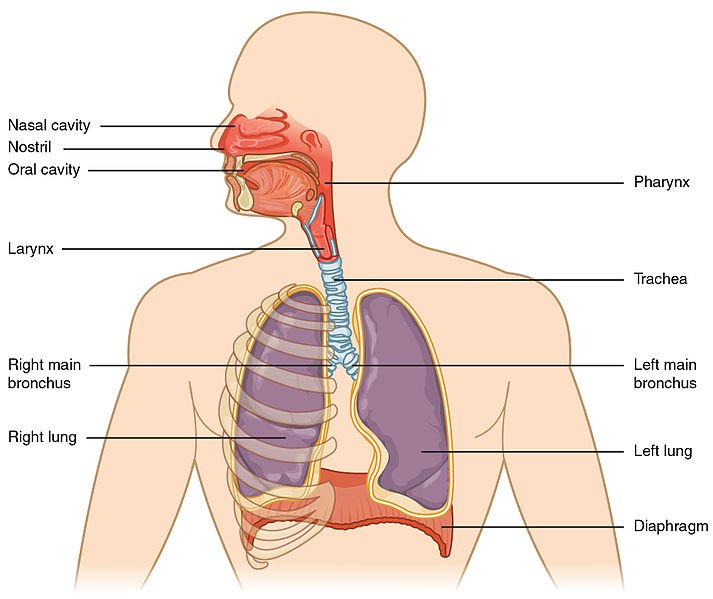Table of Contents (click to expand)
The inflammation of your vocal folds, coupled with excess mucus in your respiratory tracts, causes your voice to drop in pitch until you clear up the infection/illness.
Protecting your health is an important part of everyday life, but getting sick is something that simply can’t be avoided forever. The symptoms of a cold come in many forms, but one symptom seems particularly unusual. At some point in your life, you’ve probably woken up with a sore throat, and when you speak for the first time, you let loose a deep rumble that would impress Darth Vader. It can be painful, inconvenient, and amusing, but many people just feel confused. Why does your voice change so much when you have a sore throat?

Short Answer: The inflammation of your vocal folds, coupled with excess mucus in your respiratory tracts, causes your voice to drop in pitch until you clear up the infection/illness.
Recommended Video for you:
Our Respiratory System
Before we can explain why our voice sounds so strange when we are ill, it is important to understand how we form sounds in the first place. There are three basic elements to this process: the lungs, the voice box, and the sinuses/mouth.

The lungs contain the air that we breathe in, but when we exhale, the diaphragm rises, the lungs begin to contract, and a powerful stream of air is formed that moves through the trachea. The trachea is also known as the windpipe and sitting on top of that pipe is the larynx, also known as the voice box. Inside the voice box is the crux of this whole topic, the vocal folds. These vocal folds are membranous tissue that open and close depending on what we are doing with our respiratory system (e.g., swallowing, breathing, speaking, singing, etc.).
During exhalation, when the airstream passes through the voice box, these vocal folds begin to close slightly, and the moving air causes the soft tissues to vibrate. This vibration happens very quickly, ranging from 100-1,000 times per second. This variable rate depends on what pitch of sound that we are attempting to make when singing or speaking. The pitch is manipulated by the tension placed on the vocal folds, as well as their length and thickness. You can think of the vocal folds as dynamic guitar strings; thinner strings with more tension vibrating more rapidly produce a higher pitch, while thicker strings with less tension vibrating less rapidly produce a lower pitch.
To continue the musical analogy, the vocal folds are basically the mouthpiece of your body’s vocal instrument. You can create a small buzzing sound there, but that noise needs to be amplified if you ever want to be heard. The nose, throat, mouth and sinus cavities provide that amplification and resonance, giving us the ability to speak, sing and be heard! Now, with that quick respiratory lesson out of the way, let’s tackle what an illness does to this finely tuned instrument, and why a sore throat makes you sound like Barry White…
Sore Throats And Raspy Notes
Our respiratory tracts are lined with mucus membranes, which are very important for keeping the tissues moist, and are also critical when our bodies are attacked by an infection. The common cold causes these mucus membranes to swell up and release mucus in an attempt to repel the invading pathogens. However, that immune response can be messy, as your constantly running nose, sloppy sneezes and watery eyes can attest. While different parts of our respiratory system have different functions, and aren’t necessarily attached to other areas, the mucus membranes are rather continuous, which is why infections can so easily spread. A common cold that starts as the sniffles very easily can turn into an ear infection, a sore throat, hacking coughs as a result of post-nasal drip, and plenty of other interconnected symptoms.
The larynx, which we explained above as the voice box, is often considered the connecting structure between the upper and lower respiratory systems. The trachea sits below the voice box, while the pharynx sits above it, and the mucus membranes link all three of these areas. Therefore, when those membranes swell in response to an infection, the vocal folds similarly fatten up, and become coated with excess mucus. As our analogy above explained, thick vocal folds with less tension vibrate more slowly and produce a lower pitch. Until those vocal folds return to their normal size, and the worst of the inflammation is past, it is highly unlikely that you will be able to nail those soprano notes.

Furthermore, the mucus coating the vocal folds makes it difficult for them to vibrate, meaning that less sound can be produced. This is why your voice may not only be lower in pitch, but also raspier, as the airstream is more interrupted in the sticky maze of your airways. If there is too much mucus being produced, you might suffer from full-blown laryngitis, in which case your voice will disappear entirely!
Next time you’re feeling under the weather and your voice drops into the bottom of a well, at least you can explain to people why you sound like a super villain. Or better yet, save your voice and avoid any further irritation to your vocal folds and mucus membranes!













